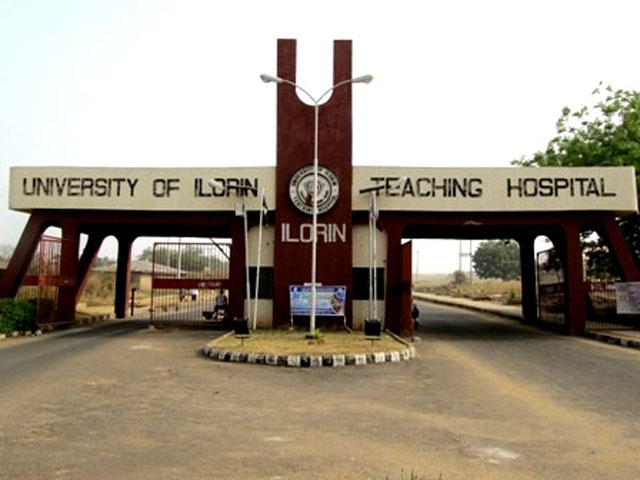'IVF babies are normal children'

The Coordinator, Assisted Reproductive Technology Unit, University of Ilorin Teaching Hospital, Dr. Omokanye Omotayo, has said that babies conceived through in-vitro fertilisation are normal children.
He spoke with PUNCH correspondent in Ilorin, Kwara State, on Tuesday, on the sidelines of the one-year birthday anniversary of UITH's fourth IVF baby, Aishat Oladipo. To think that IVF babies are not normal, according to him, is a misconception. Omotayo, who is a consultant obstetrician and gynaecologist, noted that there were about five million IVF babies worldwide, adding that the hospital achieved conception of no fewer than 15 IVF babies since its inception in 2012.
Although the conception of IVF babies is through assisted reproductive means, he noted their phonotypical look and behaviour are the same with babies conceived through the natural method.
He said, "The only difference between IVF babies and those conceived through natural means is just the ways they come to life. For people seeking IVF, they have made attempts through natural means and had not succeeded either because the sperm is of low quality or the fertility has issues because the woman has challenges and would not be able to ovulate or because her tubes are blocked.
"What IVF does in this case is just to help these people, having understood the physiology of conception. If the tubes are blocked, the IVF team harvests the eggs, gives fertility drugs and by passes the tube. The same man's sperm is used. The only thing is that the fertilisation is outside human body, in the laboratory, unlike the natural conception that takes place within the human being. That is why it is in-vitro, meaning that the process of fertilisation takes place outside human body. The phonotypical look, the appearance, the cognition in terms of sense and behaviour are the same. They are normal babies."
The consultant said it was sad that there were not many reproductive assisted public hospitals in the country. Omotayo, who noted that private concerns ran many of IVF facilities in the country, explained that the process required a lot of commitment and resources.
According to him, currently there are about 20 functional private IVF facilities in the country. Although IVF is expensive, the stated that the government should establish more public IVF facilities in order to reduce its cost, which ranges between N1.5m and N3m.
Omotayo added, "The government needs to come in and subsidise some of the fertility drugs. The best way is to encourage indigenous production. I have been to India and they produce their drugs locally. That is why you have about 500 centres running IVF in the country and they make it very cheap. The National Health Insurance Scheme has not been able to cover many of the IVF issues. Even abroad, NHIS cannot cover fertility treatment because it is very expensive.
"But if the government can subsidise the treatment, it will go a long way to help. Even states can identify with indigenous clients who are in need and support them with special funds. "The FG can encourage local production of drugs and put quality control measures. If there is special budgetary provision for IVF and to encourage local production of fertility drugs, that will be a welcome development. I am aware in Malaysia; IVF is free for the indigenes irrespective of the number of cycles the patient wants to go.
"The challenge of infertility is enormous, especially in environment with high gynaecological case loads, as over 60 per cent of people seeing a doctor is having a problem with infertility. You can imagine the number of people affected."
Cloud Tag: What's trending
Click on a word/phrase to read more about it.
Yusuf Lanre Badmas Shade Omoniyi College Of Arabic And Islamic Legal Studies SARS Mutawalle Abiodun Abdulkareem Mazars Consulting Shettima Tsaragi/Share Saka Abimbola Isau Abdulrauf Aliyu Alagbado Olupako Of Share Economic And Financial Crimes Commission Vasolar Kumbi Titiloye BECE Saliu Oluwole Oyawoye KWSUED Folorunsho Alao Kwara Central IYA YUSUF Ishaq Abdulkarim Abdulfatai Baakini Tafida Of Kaiama TESCOM Mohammed Abduraheem Sa\'adu Gambari Durbar Ifelodun Toyin Abdullahi Oniye Samuel Adaramola Kamaldeen Ajibade SWAN Abiodun Jacob Ajiboye Adesoye College Umar Yakubu Jaja Hamza Usman Garba Idris Ajia Centre For Digital Economy Isiaka Abdulrazak Galadiman Ngeri Opolo Global Innovation Limited Olabode Towoju Al-Adaby Kwara 2015 Ahmed Monthly Sanitation Exercise Valsolar Consortium Kwara 2023 Opaleke Bukola Iyabo Nupe Radio Kwara Assayomo Kwara Hotel Saad Belgore Garba Dogo David Oyepinola Adedumoye Salmon Babatunde Salmon Abiodun Musa Aibinu Adeleke Ogungbe Aminat Ahmed Osinbajo Tunde Idiagbon Road Bureau Of Lands Yusuf Abdulkadir Kudirat Arinola Lawal Ajayi Okasanmi Ilesha-Baruba Innocent Okoye Owo Isowo Summit University Yakub Lai Gobir Abdulkareem Alabi Emir Of Kano


